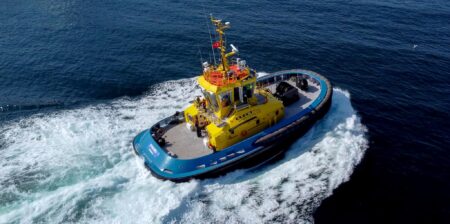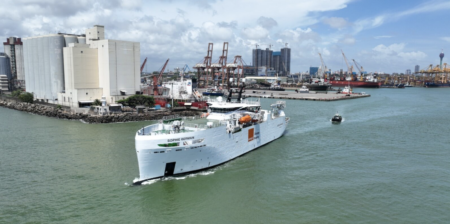The CSL Group and Algoma Central Corporation order a new generation of kamsarmax-based ocean belt self-unloading ships
The CSL Group and Algoma Central Corporation, who together form the CSL International Pool, today announced a newbuild order with Jiangsu Yangzi-Mitsui Shipbuilding Co., Ltd., to construct four new methanol-ready Kamsarmax-based ocean belt self-unloading vessels. These new ships will replace the Pool’s oldest vessels and become the model for its next generation of ocean self-unloaders.
Two of the four jointly designed, 72,250 DWT newbuild ships have been ordered by Algoma and the two others by CSL. The commercial partners have an option to build an additional two vessels.
“We are reinvesting with confidence in a business segment that has performed well for us for many years, alongside our long-term partner, and with YAMIC, a shipyard having a proven track record for quality construction and on-time delivery of these specialized assets,” said Gregg Ruhl, President and CEO of Algoma. “The teams at Algoma and CSL combined their decades of experience in this space to design the optimum ship for the Pool trades, while simultaneously taking yet another leap forward in reducing our carbon footprint.”
In line with Algoma and CSL’s decarbonization efforts, the new ship design exceeds EEDI Level III requirements and includes Tier 3 engines. The vessels are expected to be 40% more efficient than the ships they will replace owing to a combination of fuel efficiency and optimized cargo lift.
“This joint order represents our long-term commitment to serving our customers safely and sustainably with our ocean-going Pool of ships,” said Louis Martel, President and CEO of CSL. “Designed with efficiency and versatility in mind, these new vessels will have the advantage of being interchangeable and able to adapt to any trade and operating condition.”
The new vessel order will replace the three oldest ships in the Pool and see its fleet size increase to 19. The first vessel delivery is scheduled for July 2025, beginning with an Algoma ship. The subsequent deliveries are expected every three months.



